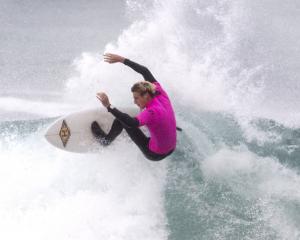Is it disrespectful to announce to everyone that Lomu, who appeared to be ‘‘living well'' despite his illness, died with little in the way of a nest egg for his boys?
On a personal level, it does sully the image of one of rugby's global legends and makes what was already a sad story even more tragic.
At a societal level, however, it was a rags to riches to rags story that needed to be told.
It is a story that reveals issues such as whether or not athletes are prepared appropriately for retirement, and in particular whether players from disadvantaged groups in society are provided with enough education, financial literacy and advice to make the right choices once the boots have been put away for good.
There is much debate about whether the Jonah Lomu Legacy Trust should exist to support Lomu's sons, Brayley and Dhyreille, as they grow into men.
Much of this debate centres around who or what is to blame for Lomu's finances and whether ‘‘we'' should be expected to support his children when so many other families experience the same plight.
Perhaps a more important question to ask is who benefited from his efforts in the sport of rugby union?
Lomu's status as one of the first global superstars in rugby definitely didn't hurt the NZRU or the IRB, and his presence at many events always pleased those in attendance and helped the events to be a success.
Rugby's growth and wealth was built on the backs of players like Lomu, so setting up a trust to acknowledge the role he played in the global success of the game is more than justified.
If the story ended here, though, it would still be tragic, because the trust is the ambulance at the bottom of the cliff and doesn't prevent other players from making the same mistakes.
Lomu's situation sends a warning signal to other players to get their financial affairs in order now and to prepare for retirement - which isn't always expected or planned.
All athletes face the inevitability of retirement at some point in their career and sport organisations these days have a duty of care to help with that transition.
It was unfortunate that Lomu's rugby career blossomed at a time when the Professional Development Programme managed by the NZRPA and supported by the NZRU hadn't kicked in.
That programme may have provided him with more financial literacy and knowledge about how to build and protect his assets for life after rugby.
As a trailblazer, Lomu was at the cusp of professional rugby's development and missed the safety nets most players are now exposed to.
Of course, most young players believe they are invincible, and so attractive is the professional sporting career that they tend to ignore the warning signs or development opportunities presented to them.
From a young age, Lomu's athleticism was exploited to create the 11th wonder of the rugby world.
There is no doubt he was athletically gifted, but by channelling him down that path, were other pathways inevitably closed to him?
Earlier this month, outspoken retired rugby player Eliota Fuimaono-Sapolu discussed his ongoing criticism of rugby for exploiting Polynesian players.
In retirement he is now focused on broadening the horizons of his fellow Polynesians beyond sport, which he suggests ‘‘buys into the narrative of the savage Polynesian'', and encouraging Polynesian people to think beyond being an athlete.
Hopefully the trust will provide a future for Lomu's boys that broadens their horizons beyond sport so they may appreciate some of the joys their father did without experiencing the tragedy.
This trust may help fund an education, for instance, that in the words of Fuimaono-Sapolu helps empower these boys to see ‘‘how beautiful and brilliant they are''.












